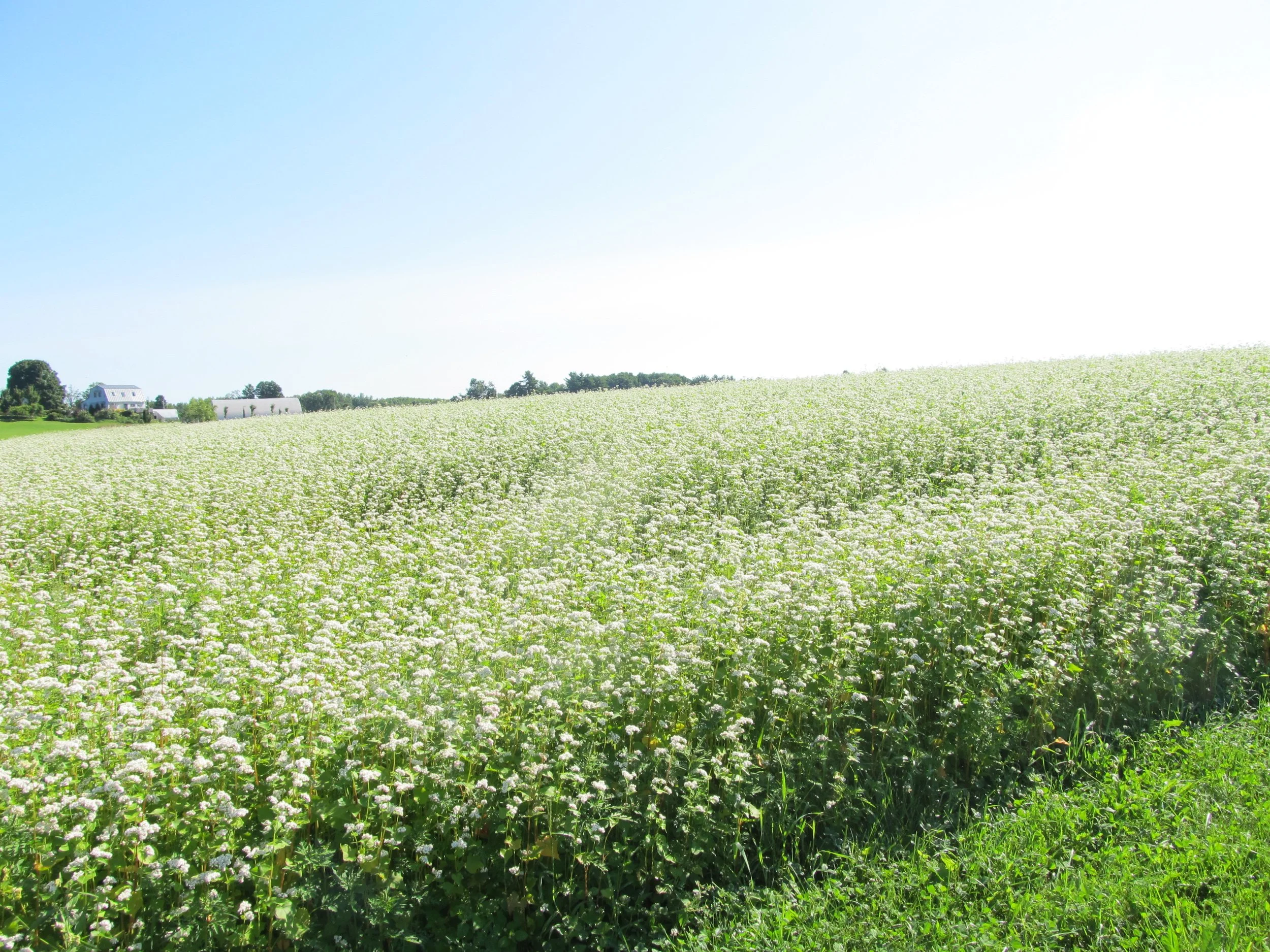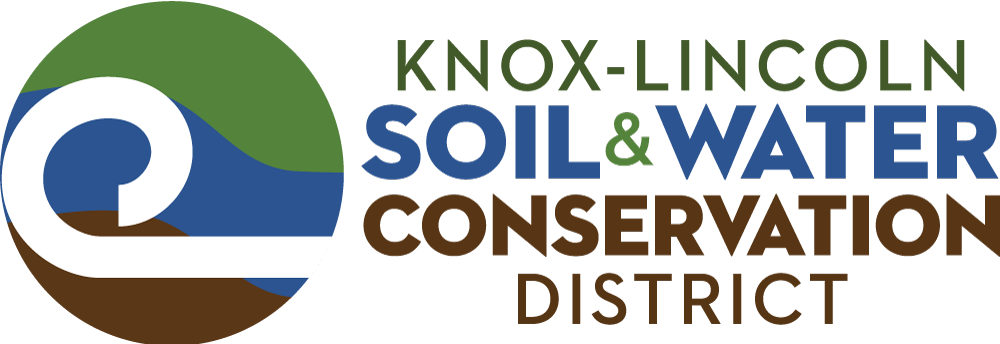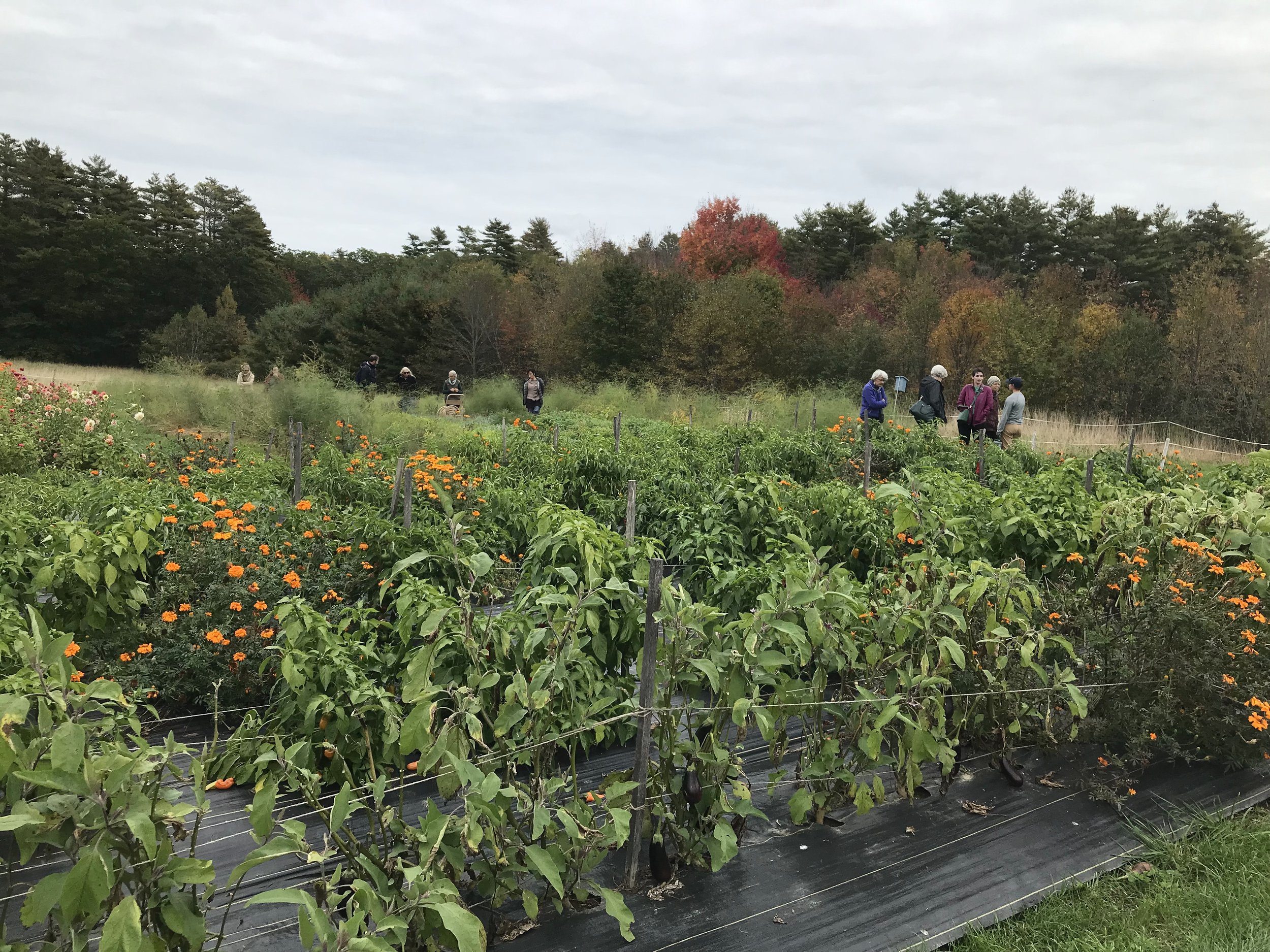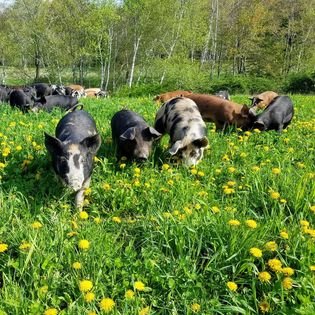
Natural Resources Conservation Service
Organic Initiative
The National Organic Initiative, funded through the Environmental Quality Incentives Program (EQIP), is a voluntary conservation program that provides technical and financial assistance for organic farmers and ranchers, or those interested in transitioning to organic.
What is the Organic Initiative ?
NRCS can help organic producers improve their operations or help producers transition to organic using a conservation plan tailored to their needs. Organic producers may apply to either EQIP or EQIP’s Organic Initiative. The EQIP Organic Initiative has a smaller ranking pool, and cap on funding.
Assistance begins with the development of a conservation plan based on a needs assessment and each farmer’s unique goals. The plan includes conservation practices, systems or activities, and the resource concerns identified in the assessment.
Common conservation practices, systems or activities planned include:
Improving irrigation efficiency;
Developing a Conservation Activity Plan for Transition that can be part of the Organic Systems Plan;
Establishing buffer zones;
Creating pollinator habitat;
Improving soil health and controlling erosion;
Developing a grazing plan and supportive livestock practices;
Enhancing cropping rotations;
Nutrient and pest management activities;
Managing cover crops; and
Interested in getting support? Contact your local District Conservationist.
Learn more about Natural Resources Conservation Service and other programs and initiatives offered.
Eligibility
Certified Organic - producers with a USDA National Organic Program (NOP) Organic Certificate or proof of good standing from a USDA accredited certifying agent. The certification must be maintained for the life of the EQIP contract.
Exempt from Certification of the NOP - producers who are selling less than $5,000 a year in organic agricultural products and are exempt from NOP’s certification. Exempt organic producers are eligible for the EQIP Organic Initiative if they self-certify that they agree to develop and work toward implementing an Organic Systems Plan (OSP), as required by the NOP.
Transitioning to Organic - producers who are in the process of transitioning to organic. Transitioning producers self-certify that they agree to develop and work toward implementing an OSP, as required by the NOP.
How to Get Assistance
-
To get started with NRCS, we recommend you stop by your local NRCS field office. They’ll discuss your vision for your land.
NRCS provides landowners with free technical assistance, or advice, for their land. Common technical assistance includes resource assessment, practice design and resource monitoring. Your conservation planner will help you determine if financial assistance is right for you.
-
NRCS staff will walk you through the application process. To get started on applying for financial assistance, we’ll work with you:
To fill out an AD 1026, which ensures a conservation plan is in place before lands with highly erodible soils are farmed. It also ensures that identified wetland areas are protected.
To meet other eligibility certifications.
Once complete, NRCS staff will work with you on the application, or CPA 1200.
Applications for most programs are accepted on a continuous basis, but they’re considered for funding in different ranking periods. Be sure to ask your local NRCS district conservationist about the deadline for the ranking period to ensure you turn in your application in time.
-
As part of the application process, we’ll check to see if you are eligible. To do this, you’ll need to bring:
An official tax ID (Social Security number or an employer ID)
A property deed or lease agreement to show you have control of the property; and
A farm tract number.
If you don’t have a farm tract number, you can get one from USDA’s Farm Service Agency. Typically, the local FSA office is located in the same building as the local NRCS office. You only need a farm tract number if you’re interested in financial assistance.
-
NRCS will take a look at the applications and rank them according to local resource concerns, the amount of conservation benefits the work will provide and the needs of applicants.
-
If you’re selected, you can choose whether to sign the contract for the work to be done.
Once you sign the contract, you’ll be provided standards and specifications for completing the practice or practices, and then you will have a specified amount of time to implement. Once the work is implemented and inspected, you’ll be paid the rate of compensation for the work if it meets NRCS standards and specifications.Item description
Print this information (downloadable PDF)
NRCS District Service Centers
To learn more and inquire about any NRCS services and programs, contact your NRCS District Conservationist.
Lincoln and Kennebec Counties
Amanda Burton, District Conservationist
amanda.burton@usda.gov
(207) 622-7847 Ext. 3
2305 North Belfast Avenue
Augusta, ME 04330
Get Directions
Knox and Waldo Counties
Peter Abello, District Conservationist
peter.abello@usda.gov
(207) 338-1964 Ext. 3
46 Little River Drive
Belfast, ME 04915-9804
Get Directions





